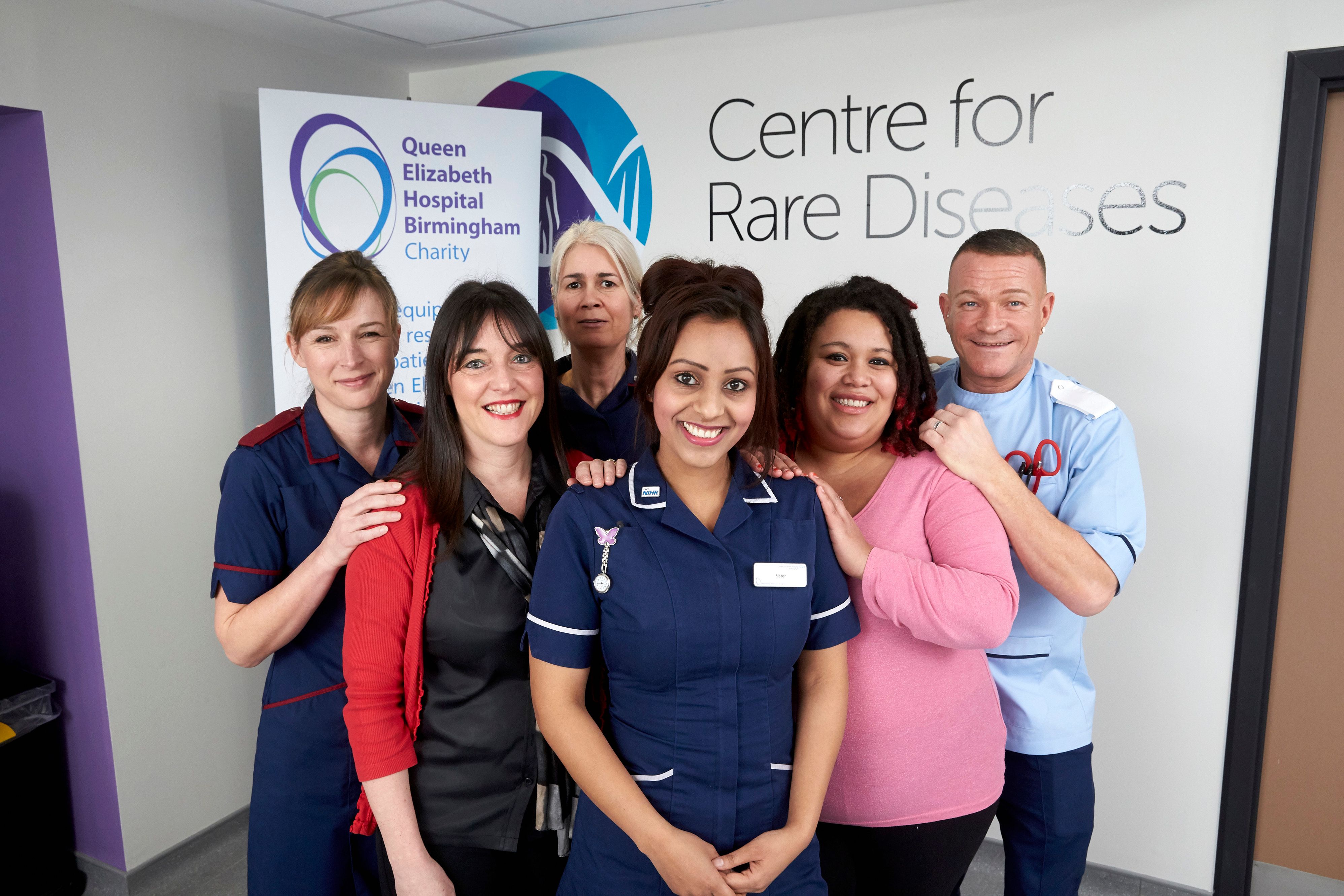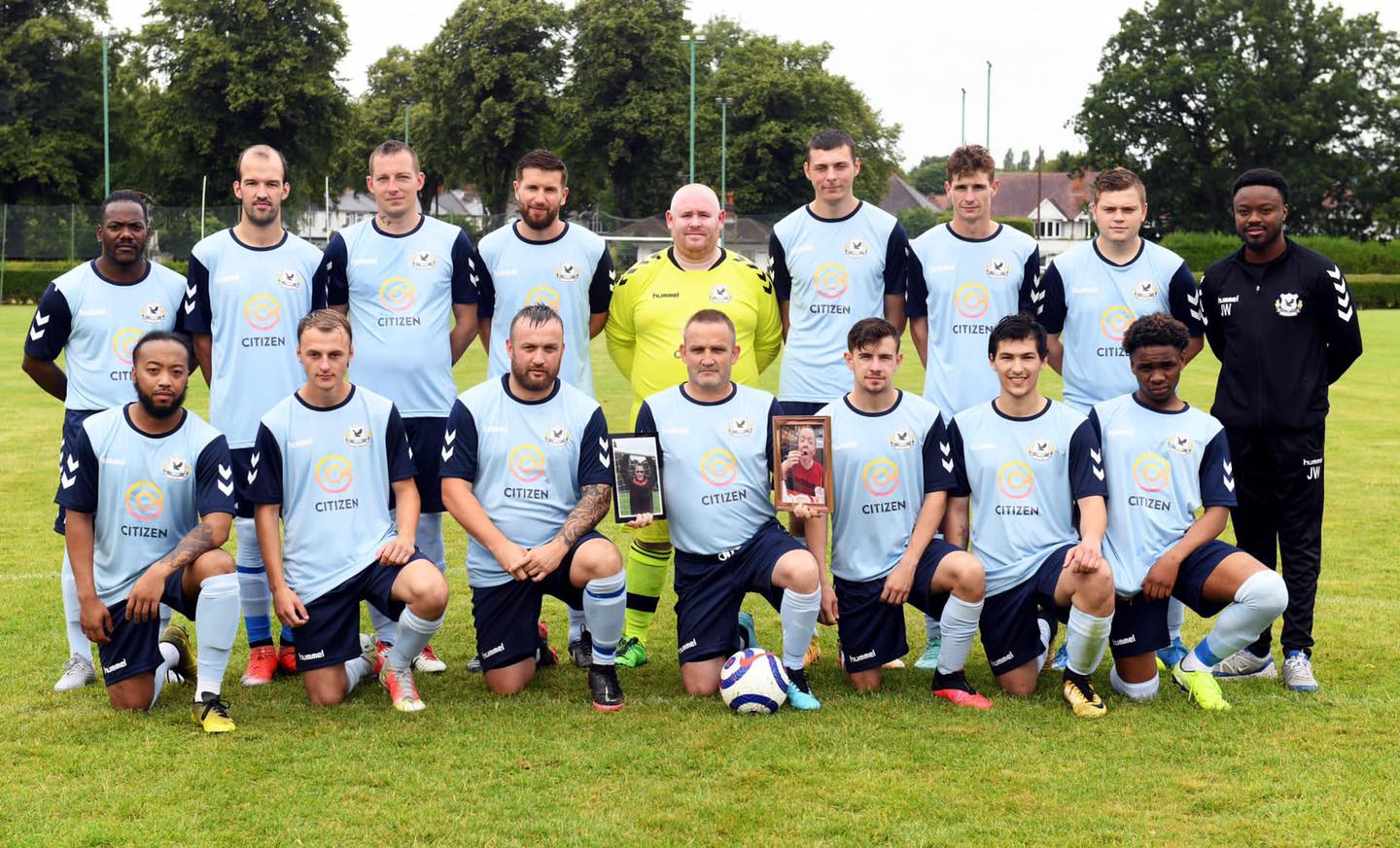
Centre For Rare Diseases
There are over 7,000 rare diseases classified in the UK. Of these, 80% have a genetic basis and surprisingly, one in 17 of us will be affected by a rare disease in our lives.
It is recognised nationally that at present, the specialist care for patients with rare diseases needs to improve. These patients can require the input of a large number of various medical, nursing and therapeutic specialists.
Every Penny Counts: Help Us Continue Supporting the Centre for Rare Diseases
Queen Elizabeth Hospital Birmingham Charity continues to support the Centre for Rare Diseases after helping to fund the Centre of Excellence, which is dedicated to developing and implementing ground-breaking treatments, technologies and techniques to benefit patient care.
Steven Wise, clinical nurse specialist in renal metabolic disease, said the lack of knowledge and information about rare diseases can make patients feel isolated and misunderstood. “It can be really damaging to a patient’s confidence in the health system when diagnosis in their condition is delayed because of its rarity," he said. “Having a centre means they know they can call us up at any time and be able to speak to somebody who understands them and their disease.”
"Patients that visit the centre often have very complex problems. Janet Hunt, nurse specialist in cardiac genetics, said the centre would provide reassurance for the family members of patients with inherited heart conditions who maybe needed screening themselves. "We build up a good relationship with the families and the centre gives them a place they can come and share their concerns."
Meanwhile, Sue Stewart, clinical nurse specialist in endocrine and genetics, said the centre would raise the profile of rare diseases which would, in turn, improve the lives of patients. “A lot of our patients struggle with things like getting health insurance or explaining what their condition is. “If we can make rare diseases more commonplace then we can help our patients feel more accepted and give them a sense of belonging.”
It brings together multi-speciality and multi-disciplinary teams to deliver care of patients with rare diseases and provides highly organised, one-stop clinics where patients can undergo pre-planned diagnostic tests and see all specialists and the multi-disciplinary team relevant to their care – in one visit.
Now, we need your help to continue offering this support to patients and families.
Queen Elizabeth Hospital Birmingham Charity, with generous donations from groups, companies and individuals, funds ‘added extras’ that the NHS can’t provide, as well as the ongoing running costs of the centre. This includes funding the resource area for patients and families; providing Wi-Fi, refreshments, computer games and iPads; and facilitating patient support groups.

Ben and Reece Swain
Ben and Reece Swain were diagnosed with Cystinosis – a genetic disease which causes crystals to form in the body. Often these start to form in the kidneys and eyes and then spread to other organs in the body. The condition is inherited when two copies of an abnormal gene are received (one from each parent).
The condition is incredibly rare with only two or three cases diagnosed in the UK every year – and George says his family is the only one in the world with three people who have the condition. George’s daughter, Bettie, has also been diagnosed with Cystinosis.
Ben passed away in February 2019 and Reece passed away in March 2020 at the ages of 27 and 25 respectively. Both were avid Liverpool fans, and this is why his dad set up BRS United Football Club (pictured) in their memory and helped raise funds for the Centre for Rare Diseases at the QE.